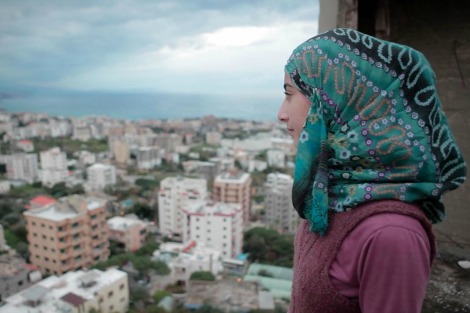Which refugees would Jesus resettle?
Aloysious Mowe
A woman goes up to Jesus to plead for her daughter’s life. Jesus won’t even look at her: she’s a Canaanite, from a despised people long regarded as an enemy of the Jewish people. When she continues to beg for his help, he says, dismissively, ‘I am here to help only people of the Jewish faith, my own people. Helping you would be like taking food away from children and tossing it to a dog.’
 The Canaanite woman retorts, ‘Call me a dog if you want, but if there are crumbs that fall off the children’s table, surely even you wouldn’t mind this dog licking the crumbs up.’
The Canaanite woman retorts, ‘Call me a dog if you want, but if there are crumbs that fall off the children’s table, surely even you wouldn’t mind this dog licking the crumbs up.’
Her wit and her tenacity, born of love and desperation, wins Jesus over: her daughter is saved.
The Australian government’s announcement in September that it would permanently resettle 12,000 refugees from Syria, in addition to the 13,750 humanitarian intake quota that current policy already allows for, justifiably received universal praise and welcome.
It is unfortunate that this important step forward, in a political environment that has not been generally sympathetic to people overseas seeking safety from conflict and persecution, has encountered prejudice and self-interest in the form of voices calling for the 12,000 places to be given predominantly, and even exclusively, to Christians.
There are claims that Christians are under-represented in the Syrian refugee camps, because the camps are dominated by Muslims and therefore unsafe for Christians. Further, it is claimed that it is only in the camps that the UNHCR, tasked with identifying those most in need of resettlement, registers refugees.
This is patently not the truth. There are 1.3 million Syrian refugees registered with the UNHCR in Lebanon: all of them live in the Lebanese community, as there are no Syrian refugee camps in Lebanon. How are Christians being excluded from resettlement for not being in camps in Lebanon, when in fact no Syrian refugee — Muslim, Christian, or otherwise — is in a camp?
Of the 633,000 refugees registered by the UNHCR in Jordan as of November this year, only 20 per cent live in the two refugee camps in that country. It is clear that the UNHCR registration is not limited to camp refugees even in a country such as Jordan, where two camps do in fact exist.
Let us be clear: lurking under all the justifications for privileging Christians is a toxic fear and dislike of Muslims. The UNHCR guidelines for resettlement are there for a reason: those who need resettlement, when this option is available, are the most vulnerable and weak in a refugee population, namely children and teenagers, women at risk, people with urgent medical needs, the elderly, victims of torture and trauma, split families, et al. None of these should be subject to a religious test.
As several Muslim commentators have said in the Australian media, you do not ask a drowning person her religion before rescuing her.
The Christian church does not exist to preserve itself, or promote its own wellbeing. It is a sacramental presence, a sign of God’s loving purposes for all of his creation. If we celebrate anything at Christmas, it is the supreme sign of God’s love for humanity: the coming of Jesus, the eternal son made flesh.
It is that same Jesus who was so challenged by the desperation and love of a mother that he moved beyond the prejudices and anxieties that good and pious Jews felt towards non-Jews. Let us who call ourselves Christians do likewise with the other in our midst.
http://www.eurekastreet.com.au/article.aspx?aeid=45819#.V5GbByO7ikp



